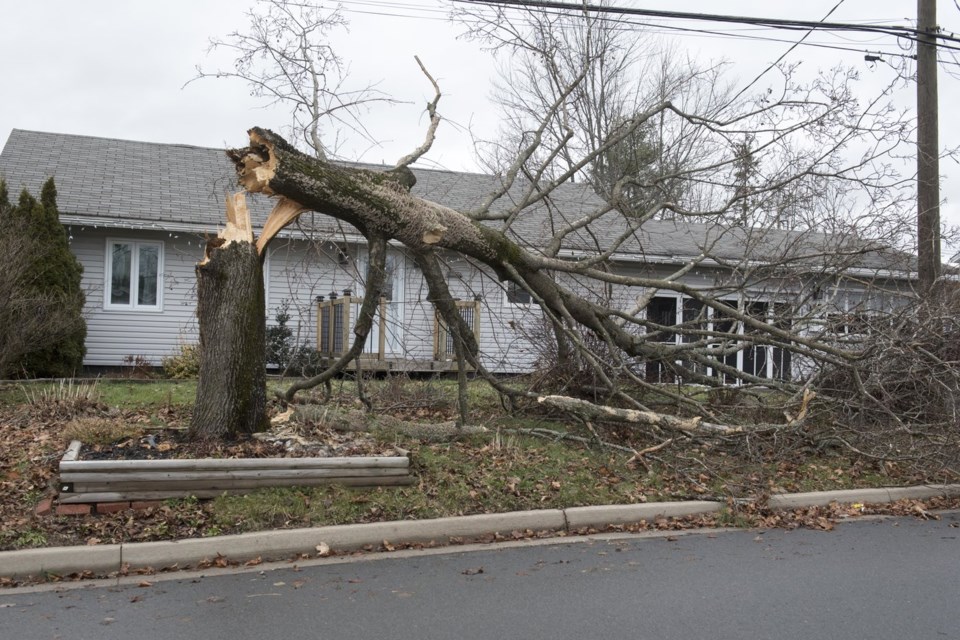FREDERICTON — Warming temperatures, rising sea levels and coastal erosion are threatening communities up and down New Brunswick, but with just over one week to the provincial election, some voters say the topic of climate change hasn't been given enough attention during the campaign.
Housing and health care have dominated the headlines, said Donald Wright, a professor of political science at University of New Brunswick. But he said climate change is just as important because it is intertwined with both those issues.
The province can expect increasingly hotter summers, which bring health risks, and flooding, which threatens homes, said Wright, a contributor to Yale Climate 91Ô´´ions at Yale University. New Brunswick has to adapt its infrastructure, emergency response and health-care system to the changing climate, he added.
"It certainly has to adapt its public health care to meet the challenges of extreme weather, extreme heat events."
But in the recent debate with all three main party leaders on stage, not one question was about climate. "I was stunned by the climate silence," he said.
In Shippagan-Les-ĂŽles, a riding by the Gulf of St. Lawrence, residents are dealing with coastal erosion, flooding and eroded sand dunes, said Wilfred Roussel, candidate for the Green Party. Locals are so concerned by the changing climate that he decided to come out of retirement to run for office, he said.
Roussel, who was mayor of Le Goulet from 2012 to 2014, said people in the region who live near the water have lost 30 to 45 metres of land; houses that once looked out over the ocean are now in danger of being washed away.
"It's starting to get very dangerous for people living in those houses," he said. "Something must be done. And municipalities do not have the budget to do this."
Andrew Black is mayor of Tantramar, a municipality located close to the Bay of Fundy and the Chignecto Isthmus — a land link connecting New Brunswick with Nova Scotia. The isthmus is particularly vulnerable to climate change, he said, and rising seas will potentially flood the area and destroy homes and infrastructure. The floodwater could salinate arable farmland and make it unusable for generations, he added.
New Brunswick and Nova Scotia are fighting with the federal government over who should pay to adapt the isthmus to climate risks.
Coastal erosion is also a major concern, considering that much of Tantramar is located within the United Nations recognized Fundy biosphere, Black said.
"This region is well known for its teaming flora and fauna that is appreciated not only by our community but by many tourists who flock to this area," he said. "Having our coastline erode would cause not only a climate disaster but also impact our tourism, economic development and biodiversity within our region."
And despite the real economic, health, and environmental risks of climate change, parties shy away from the topic because they fear alienating voters, Wright said.
"They don't want to be seen as prophets of the apocalypse," he said. "They want to keep a positive, upbeat message. But the reality is, our climate is changing in real time, and we have to adapt every sector of our economy, every system of our economy."
Progressive Conservative Leader Blaine Higgs said on Oct. 7 that his climate change plan can be found in his government's energy strategy, released in December, which aims to make New Brunswick carbon neutral within 12 years. "So I'm not going to invent a new (policy) on the bus," he said.
Higgs has also promised to sue Liberal Prime Minister Justin Trudeau's government over the federal carbon pricing scheme. The carbon tax is affecting all New Brunswickers by driving up the cost of living, and it also has "hidden costs" that many do not consider, he said in a recent news release.
Wright called the threat of the lawsuit against the federal government over the carbon price "diversionary and a waste of time."
The Liberal platform calls for reviewing and updating the province's emergency preparedness to deal with the increasing number of extreme climate-change-related weather events, and implementing a coastal erosion plan to protect communities.
Last week, Liberal Leader Susan Holt highlighted the need for a coastal erosion plan, and more funds to help New Brunswickers who are losing their shorelines and homes. In her platform, she said, "You see a focus on clean air and clean water, a mass electrification of the government's fleet, and a goal to get our own grid and production of electricity to 100-per-cent non-emitting."
The Green Party has promised to create a climate fund to help municipalities pay for adaptation measures; create a new agency to help communities protect their coastlines; and launch a youth corps to train people aged 17-30 in climate action.
"The Greens are the only ones who have made commitments that recognize the extreme urgency to make New Brunswick climate-ready to safeguard homes and save lives," party leader David Coon said.
This report by The 91Ô´´ Press was first published Oct. 12, 2024.
Hina Alam, The 91Ô´´ Press



